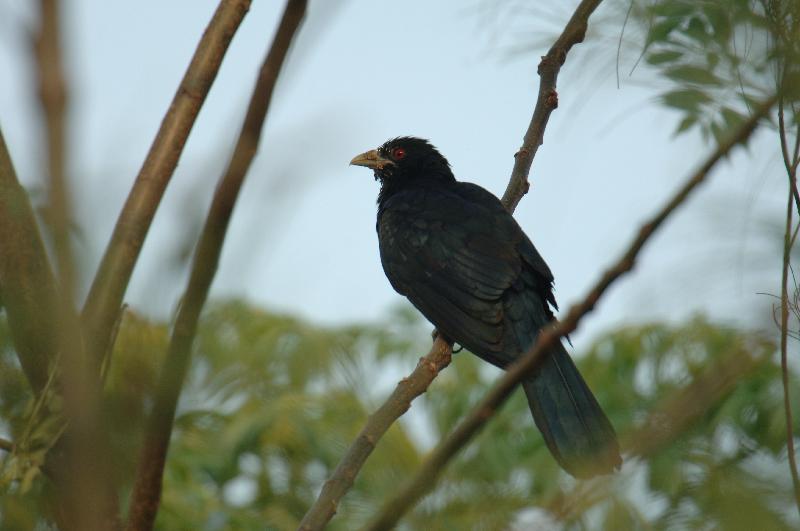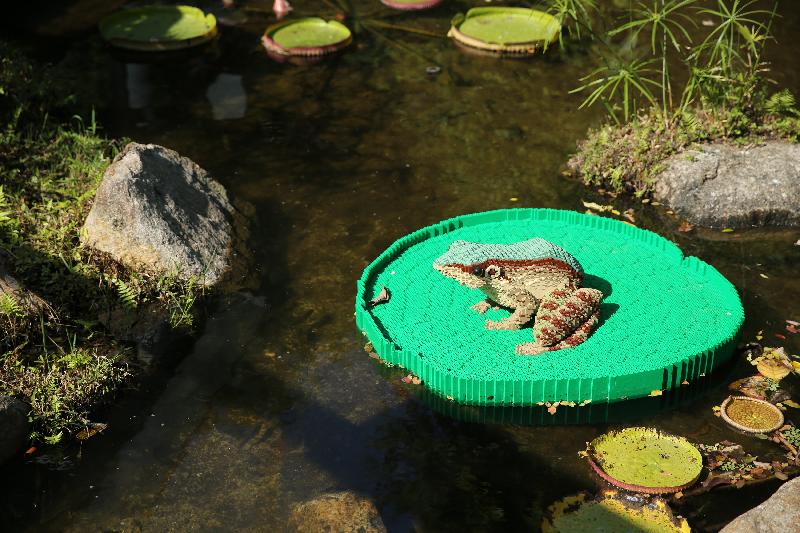Following is a question by the Hon James To and a reply by the Secretary for Security, Mr John Lee, in the Legislative Council today (November 27):
Question:
It has been almost six months since the eruption of the disturbances arising from the opposition to the proposed legislative amendments. It has been reported that the acts of some police officers in handling public events have aroused public concerns. Such acts include firing a number of tear gas rounds at universities and residential areas, shooting and injuring demonstrators under unwarranted situations, running a motor cycle into demonstrators, firing sponge rounds at journalists who were performing news covering work, spraying pepper sprays at the face of bystanders and journalists at close range, cursing and arresting bystanders, arresting District Council members who were at the scenes of demonstrations observing the situation, and arresting members of the public who donated supplies such as clothes and food. In this connection, will the Government inform this Council:
(1) of the details of the cases in which police officers fired live ammunition and rubber bullets respectively during public events since June this year, including the number of police officers involved, the number of bullets fired, the resultant casualties (with a breakdown by demonstrators, journalists and members of the public), the body parts of the injured to which injuries were sustained, as well as the current number of persons who are now hospitalised;
(2) of the respective numbers of police officers who were subject to complaints, warnings, suspension from frontline duties, orders to take leave, criminal investigations, and punishments, as a result of breaches or suspected breaches of the Police General Orders or the guidelines on the use of force since June this year; whether the newly appointed Commissioner of Police will order police officers to exercise restraint when performing duties, impose severe punishment on the police officers breaching the relevant requirements, and refer cases of police officers being alleged of having committed criminal offences to the Department of Justice for consideration of whether or not prosecutions should be instituted; and
(3) as the International Expert Panel set up by the Independent Police Complaints Council (IPCC) a few months ago has indicated early this month that with a shortfall in IPCC powers and its independent investigative capability, it is necessary to enhance IPCC's capability to gather evidence before IPCC can complete its interim report, and it has also proposed that a more comprehensive inquiry should be conducted by an independent body as a next step, whether the Government will consider the Panel's proposal and make public fully the interim report?
Reply:
President,
Members of the public enjoy the freedoms of expression, speech and assembly but they must exercise them peacefully and lawfully. The Police have a statutory duty to maintain public safety and public order. When unlawful acts take place, the Police must take appropriate actions to restore peace in the community. The Police would not need to use any force if members of the public could express their views in a peaceful and rational manner.
Since June 9 this year, more than 900 protests, processions and public assemblies have been staged in Hong Kong, and many of them ended up in serious violent illegal acts. In the past five months or so, there were numerous severely illegal acts, including wantonly blocking roads, paralysing traffic, hurling petrol bombs and setting fires at various locations, throwing bricks, intentionally vandalising and burning shops and railway facilities, flagrantly assaulting others holding different opinions, seriously wounding others and violently attacking police officers, etc. Recently, a large number of persons occupied university campuses, where they caused extensive damage, stole dangerous chemicals and manufactured petrol bombs on campus targeting the Police on a large scale. For responding to and curbing violent acts, police officers have to deploy appropriate force to control the scene and bring rioters to justice so as to restore public safety and public order. While using force and making arrests, the Police must act according to the law, taking account of the situation at the scene, and in an appropriate manner. They must also comply with relevant internal guidelines of the Police.
The references to the acts of police officers in the reports mentioned in the preamble of Hon To's question have not taken into consideration the full account of events and have made unfair accusations. I do not agree to these references which do not fully reflect the facts.
In fact, serious violent and illegal acts in the past few months have already resulted in the death of an innocent member of the public who was killed by a brick hurled at him. From June 9 to November 26 this year, more than 2 600 persons were injured in major public order events (POEs) and sought medical consultation or received treatment at public hospitals, including a victim seriously burnt by a rioter who ignited flammable liquid on him. More than 470 of the injured persons were police officers who suffered from knife wounds, corrosive liquid burns, fractures, severe burns, wounds inflicted by arrows, etc.
My reply to the various parts of the question is as follows:
(1) The Police have strict guidelines on the use of force. To restore public peace, the Police will need to deploy appropriate force against violent illegal acts based on actual needs. Police officers will, as far as circumstances permit, give verbal warning before using force, and give the persons so warned the opportunity to obey police orders where practicable. Generally speaking, weapons used are non-lethal equipment, such as rubber bullets. As for the use of live ammunition, the Police have very stringent rules and guidelines. A police officer may use live ammunition to protect any person, including himself or herself, from the threat of death or serious injuries.
From June 9 to November 12 this year, the Police used about 4 800 rubber bullets in response to violent acts of protesters in various POEs. Up to November 18, the Police fired a total of 19 live shots in 13 incidents. Nine incidents involved one live shot, two incidents involved two live shots, and two incidents involved three live shots. All of the police officers concerned were protecting themselves and/or others at the scene from immediate threat of death, or potential threat of death in case the rioters were not stopped. In three incidents, the suspects were hit. A suspect was hit near the left shoulder in Tsuen Wan on October 1; another hit in the left thigh in Yuen Long on October 4; and the other hit in the right abdomen on November 11 in Sai Wan Ho. The three injured persons have been discharged from hospital. The Police do not maintain the other information requested in the question.
(2) The Police do not tolerate any breach of law or offence against discipline by police officers. If individual police officers are suspected of having done so, the Police will make investigation and follow up actively in accordance with the established mechanism, in a fair and impartial manner.
As at November 25 this year, the Complaints Against Police Office (CAPO) received 1 261 complaints in relation to major POEs since June 9. CAPO has set up a designated team of 26 members to follow up these cases. The complaints concerned are still under investigation. CAPO does not maintain the breakdown requested in the question.
Being a professional force, the Police have all along placed emphasis on discipline and acting in accordance with the law. The new Commissioner of Police will firmly uphold these principles.
(3) The Independent Police Complaints Council (IPCC) operates independently under the Independent Police Complaints Council Ordinance (Cap 604) to perform its statutory functions, which include observing, monitoring and reviewing the handling and investigation of reportable complaints by CAPO and making recommendations on the handling and investigation of complaints. IPCC may also identify any fault or deficiency in any practice or procedure adopted by the Police that has led to or might lead to reportable complaints, and to make recommendations to the Police and/or the Chief Executive.
In response to public concerns regarding law enforcement actions by the Police in major POEs, IPCC has established a Special Task Force and an International Expert Panel (IEP) to proactively study major POEs held since June 9 in Hong Kong and the corresponding actions taken by the Police, and to announce the progress to the public by phases.
In early November this year, an IEP member took his own initiative to upload a document named "Progress Report" onto his personal social media account. IPCC made a statement via the press on November 10, and indicated that the document had not been seen or deliberated by IPCC members. IPCC expressed disappointment about the sharing. IPCC stated that it was fully aware of the limitations of its legal powers and resources as mentioned in the document, and has been continually working to enhance its resources. IPCC stated that it was committed to submitting the preliminary report of the study with sufficient facts and preliminary conclusions to the Chief Executive and publish the details within the original timeframe (i.e. early 2020). The report to be submitted by IPCC to the Chief Executive will be made available to the public for examination in detail.
As a matter of fact, IPCC has rich experience in handling complaints against the Police. We need to give IPCC the necessary time and room so that it can focus on completing its study. The Government will co-operate fully with IPCC to facilitate its work. At present, IPCC should be allowed to perform its statutory functions under the prevailing mechanism. Upon release of the report, the Government will carefully consider the recommendations and follow up as appropriate.
Thank you, President.




